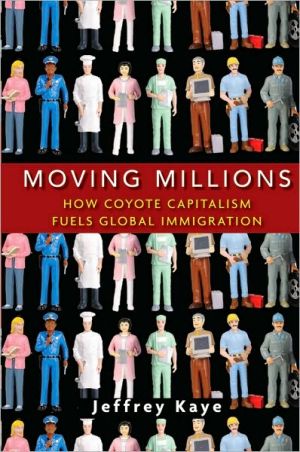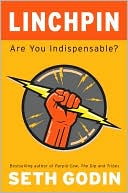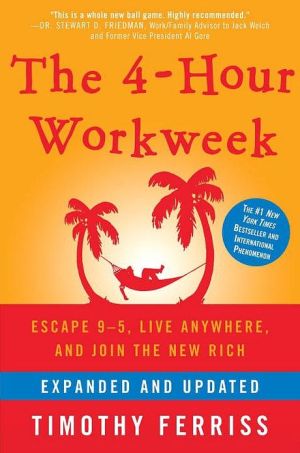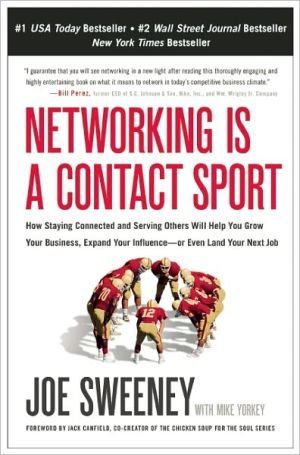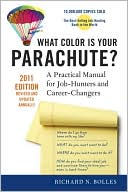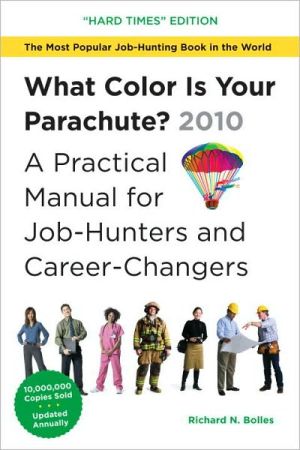Moving Millions: How Coyote Capitalism Fuels Global Immigration
Advance Praise for Moving Millions\ "A really wonderful book. With vivid writing that brings policy to life through the people most touched by it, Moving Millions pulls us across the global landscape of one of the least understood phenomena of our time—human migration—and demonstrates why each of us has a stake in what happens to these strangers in our midst. Kaye's done such a fantastic job of capturing the human, as well as the government and commercial, sides of this complicated issue. A...
Search in google:
On the same day that reporter Jeffrey Kaye visited the Tondo hospital in northwest Manila, members of an employees association wearing hospital uniforms rallied in the outside courtyard demanding pay raises. The nurses at the hospital took home about $261 a month, while in the United States, nurses earn, on average, more than fifteen times that rate of pay. No wonder so many nurses leave the Philippines.Between 2000 and 2007, nearly 78,000 qualified nurses left the Philippines to work abroad, but there's more to it than the pull of better wages: each year the Philippine president hands out Bagong Bayani ("Modern-day Heroes") awards to the country's "outstanding and exemplary" migrant workers. Migrant labor accounts for the Philippines' second largest source of export revenue—after electronics—and they ship out nurses like another country might export textiles. In 2008, the Philippines was one of the top-ranking destination countries for remittances, alongside India ($45 billion), China ($34.5 billion), and Mexico ($26.2 billion).Nurses in the Philippines, farmers in Senegal, Dominican factory workers in rural Pennsylvania, even Indian software engineers working in California—all are pieces of a larger system Kaye calls "coyote capitalism."Coyote capitalism is the idea—practiced by many businesses and governments—that people, like other natural resources, are supplies to be shifted around to meet demand. Workers are pushed out, pulled in, and put on the line without consideration of the consequences for economies, communities, or individuals. With a fresh take on a controversial topic, Moving Millions knocks down myth after myth about why immigrants come to the United States and what role they play in the economy, challenging the view that immigrants themselves motivate immigration, rather than the policies of businesses and governments in both rich and poor nations. Kaye takes readers around the world in search of answers, with stops in Mexico, Europe, the UAE, Poland, Senegal, and elsewhere. Interviewing smugglers and undocumented workers, recruiters and legal immigrants, Kaye finds surprising connections between globalization, economic growth, and the convoluted immigration debates taking place in the United States and other industrialized countries. What does it all add up to? America's approach to importing workers looks from the outside like a patchwork of unnecessary laws and regulations, but the machinery of immigration is actually part of a larger, global system that satisfies the needs of businesses and governments, often at the expense of workers in every nation.Moving Millions brings a new perspective to the looming debates over comprehensive immigration reform in Washington. It is important reading for policy makers, activists on both sides of immigration and globalization debates, and anyone who wants to understand an issue that will remain a major point of domestic and international political conflict for decades to come. Publishers Weekly Kaye, a special correspondent for PBS, writes that the American approach to immigration isn't working and suggests ways to change course. He uses the term “coyote capitalism,” a system of interlocking, dependent relationships, to describe how unauthorized Mexican labor recruiters trade in human cargo and influence migration. He examines how coyotes and various other businesses encourage, support, and benefit from both legal and illegal migration—and how globalization has made it increasingly profitable to do so. He also looks at American economic and trade policies that encourage rather than hinder migration. Kaye provides an insightful glimpse into recruitment agencies and their impact, and offers an astute study of the effects of politics, influence, and alliances on immigration. While a dense read, the book is well worth the effort. Kaye makes a convincing argument and offers, for many readers, a completely new perspective. (Apr.)
Click to read or download
Acknowledgments. Introduction. 1 Lures and Blinders. 2 Growing People for Export. 3 Migrants in the Global Marketplace. 4 Switching Course: Reversals of Fortune. 5 Recruitment Agencies and Body Shops. 6 Smugglers as Migration Service Providers. 7 "We Rely Heavily on Immigrant Labor". 8 Servitude and Cash Flows. 9 "Help Wanted" or "No Trespassing". 10 Politics, Infl uence, and Alliances. 11 Southwest Showdowns. 12 Fresh Blood and National Selection. 13 "Torn Apart for the Need to Survive". Notes. Index.
\ Publishers WeeklyKaye, a special correspondent for PBS, writes that the American approach to immigration isn't working and suggests ways to change course. He uses the term “coyote capitalism,” a system of interlocking, dependent relationships, to describe how unauthorized Mexican labor recruiters trade in human cargo and influence migration. He examines how coyotes and various other businesses encourage, support, and benefit from both legal and illegal migration—and how globalization has made it increasingly profitable to do so. He also looks at American economic and trade policies that encourage rather than hinder migration. Kaye provides an insightful glimpse into recruitment agencies and their impact, and offers an astute study of the effects of politics, influence, and alliances on immigration. While a dense read, the book is well worth the effort. Kaye makes a convincing argument and offers, for many readers, a completely new perspective. (Apr.)\ \ \ \ \ From the PublisherKaye, a special correspondent for PBS, writes that the American approach to immigration isn't working and suggests ways to change course. He uses the term "coyote capitalism," a system of interlocking, dependent relationships, to describe how unauthorized Mexican labor recruiters trade in human cargo and influence migration. He examines how coyotes and various other businesses encourage, support, and benefit from both legal and illegal migration—and how globalization has made it increasingly profitable to do so. He also looks at American economic and trade policies that encourage rather than hinder migration. Kaye provides an insightful glimpse into recruitment agencies and their impact, and offers an astute study of the effects of politics, influence, and alliances on immigration. While a dense read, the book is well worth the effort. Kaye makes a convincing argument and offers, for many readers, a completely new perspective. (Apr.) (Publishers Weekly, February 22, 2010)\ Years ago, when Jeffrey Kaye and I were both contributors to New West magazine, I happened to interview a Chicano activist who observed that Southern California is to the Mexican people what Israel is to the Jewish people — a homeland to which they enjoy a right of return. It was (and is) an illuminating and intentionally provocative notion, especially if we recall that the Jewish men, women and children who reached Palestine through the human smuggling operation called the Aliyah Bet were, strictly speaking, illegal aliens.\ These observations came to mind as I read Kaye’s timely and compelling new book, “Moving Millions: How Coyote Capitalism Fuels Global Immigration” (Wiley, $27.95). Kaye, perhaps best-known to readers as a longtime correspondent on “PBS NewsHour,” conducted his research around the world, but the book is a uniquely American take on the immigrant experience. At a moment in history when we are debating the newly enacted “Papers, please” immigration law in Arizona, Kaye reminds us that he is among the 40 percent of all residents of Los Angeles who were born elsewhere.\ His family journeyed from Russian-occupied Poland to England to the United States, seeking safety and opportunity and liberty, and he points out that his own origins are a reflection of the “mega-issues” that he studies in “Moving Millions.” “I need to acknowledge not only migrant ancestors and contemporary influences, but Alexander III Alexandrovich and Maurice Harold Macmillan, respectively the Tsar of Russia (1881-1894) and the Prime Minister of the United Kingdom (1957-1963),” he writes. “If it were not for them, I would not be where I am today. Their policies and actions propelled my family to cross continents and oceans.”\ Kaye points out that movement is a basic and enduring fact of human existence. “Humans are a migratory species,” he writes. “To escape problems and to seek out fresh prospects, we’ve been in the process of ‘globalization’ for as many as a hundred thousand years, ever since our ancestral wanderers ventured out of East Africa.” But it’s also true that the process is accelerating: “The world is experiencing an exodus on a scale never before seen.”\ As we have seen in the coverage of the new Arizona law, Americans tend to focus on the legal status of the men, women and children who cross our borders. If they have papers, they are welcomed; if not, they are excluded. (The same cruel logic, of course, was used by the British authorities in Palestine to send refugees back to Europe.) But Kaye argues that “the legal arguments mask a convenient historical amnesia and obscure more fundamental issues.”\ The factors that prompt and direct our migratory impulses, as Kaye points out, are complex and deep-rooted. In “Moving Millions,” he focuses on a single crucial issue — the role of what he calls “coyote capitalism” in the movement of human beings across international borders. “Coyote,” of course, is Spanish slang for a human smuggler, but Kaye strips the term of its cultural baggage and uses it to identify a fact of life in the world economy: “Coyote capitalism allows businesses and governments (in both developed and developing nations) to pass workers around and pass the buck.”\ “Moving Millions” is not confined to the ebb and flow of men, women and children across the border between Mexico and California. Indeed, the book opens on a street scene in Hazleton, Penn., a small coal-mining town where the first migrants came from the British Isles, Ireland and Germany, and later from Russia and Eastern Europe, and only recently from the Dominican Republic. “I never spoke English when I was a child; it was Lithuanian,” one elderly woman told Kaye. “And I learned other languages, too, because in the neighborhood, if I had friends who were Slovak or Polish, and their mothers were baking something, I wasn’t gonna get any unless I asked in their language.” And yet, ironically, it was in Hazleton that a local ordinance was enacted in 2006 to declare English to be the official language, a law aimed directly at the latest generation of immigrants.\ The reason that Dominicans bestir themselves to reach the coal country of Pennsylvania, of course, is to find jobs. It’s why 50,000 Philippine-trained nurses are employed in the health-care industry in the United States, and migrants from an astounding total of 188 countries are now working in Ireland. The largest migration in human history, according to Kaye, was the movement of some 130 million Chinese workers from the countryside to the cities in search of factory employment. And the machinery of “coyote capitalism” is not a purely spontaneous phenomenon; rather, it is planned and executed in “corporate suites and government centers” across the world. Kaye reports that as many as 15,000 firms specialize in recruitment in one form or another, ranging from smugglers on the U.S.-Mexico border to publicly traded companies in Switzerland and the Netherlands.\ So Kaye reminds us that politicians, pundits and police chiefs who inflame and exploit the issue of immigration are overlooking its role in the free enterprise system that they purport to defend. “Global and local businesses rely on human mobility and on ready, vulnerable pools of labor often available at bargain basement prices,” explains Kaye. “The migrant-dependent industries are the same across the globe. Many of the world’s farm fields, hospitals, nursing homes, and construction sites would be losing enterprises if not for the work of foreign laborers. Ditto for hotels and restaurants, labor-intensive manufacturing, and low-skilled services.”\ Kaye demands that we consider the human and moral dimension of immigrant labor in America and around the world. “In the final analysis, how we respond to migration and how we treat the strangers among us are reflections of our connections to humanity,” he concludes. “Politicians arguing over who is deserving of human rights need look no farther than their own family trees for insight.” To put it another way, the vilification of immigrants by the same people who exploit them for comfort and profit is not just hateful but also hypocritical.\ Kaye is an investigative reporter of long and distinguished experience, and “Moving Millions” is an example of what journalism used to be and ought to be. He digs deeply into the facts, asks the hard questions and shares what he has discovered in clear and considered prose. In contrast to the odds and ends that pass for information in our benighted times — Wikipedia entries, Google search results and crawls at the bottom of a TV screen — Kaye’s book is the real thing.\ —Jonathan Kirsch, book editor of The Jewish Journal, is the author of 13 books, including “The Woman Who Laughed at God.”\ \ \
